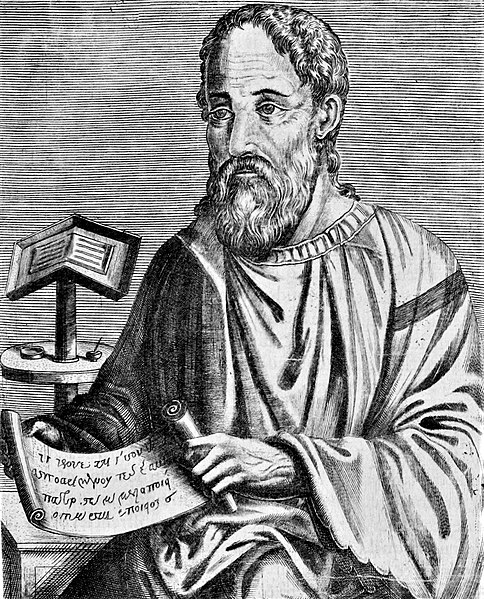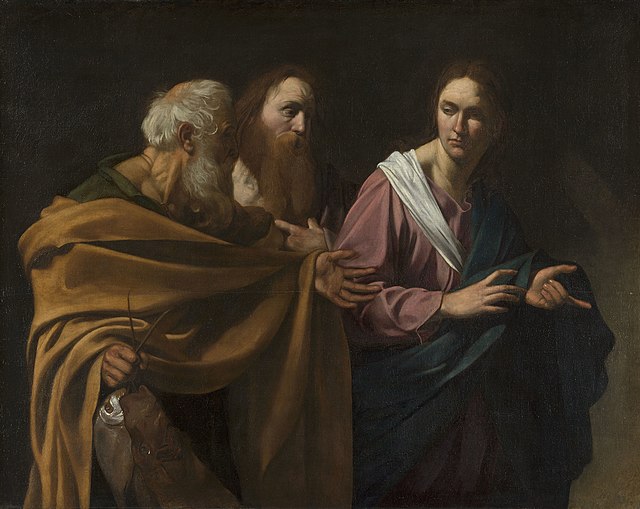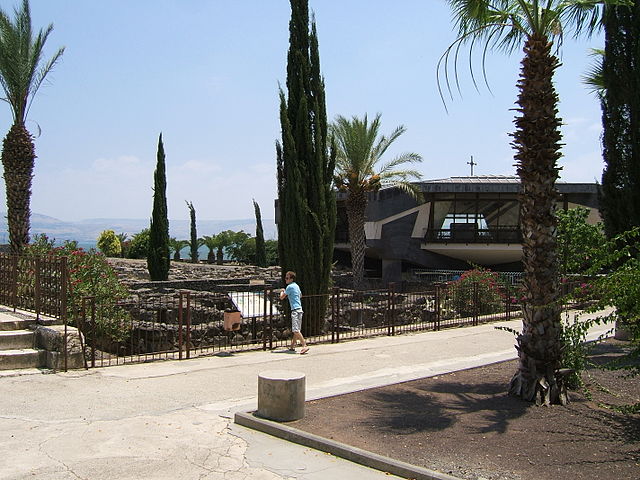The Liber Pontificalis is a book of biographies of popes from Saint Peter until the 15th century. The original publication of the Liber Pontificalis stopped with Pope Adrian II (867–872) or Pope Stephen V (885–891), but it was later supplemented in a different style until Pope Eugene IV (1431–1447) and then Pope Pius II (1458–1464). Although quoted virtually uncritically from the 8th to 18th centuries, the Liber Pontificalis has undergone intense modern scholarly scrutiny. The work of the French priest Louis Duchesne, and of others has highlighted some of the underlying redactional motivations of different sections, though such interests are so disparate and varied as to render improbable one popularizer's claim that it is an "unofficial instrument of pontifical propaganda."
Jerome, who since the ninth century was viewed as the original author of the Liber Pontificalis
Rabanus Maurus (left) was the first to attribute the Liber Pontificalis to Saint Jerome.
Eusebius of Caesarea may have continued the Liber Pontificalis into the 4th century.
Theodor Mommsen's 1898 edition of the Liber Pontificalis terminates in 715.
Saint Peter, also known as Peter the Apostle, Simon Peter, Simeon, Simon, or Cephas, was one of the Twelve Apostles of Jesus Christ and one of the first leaders of the early Christian Church. He appears repeatedly and prominently in all four New Testament gospels as well as the Acts of the Apostles. Catholic tradition accredits Peter as the first bishop of Rome—or pope—and also as the first bishop of Antioch.
Saint Peter (c. 1610–1612) by Peter Paul Rubens, depicting Peter, vested in the pallium, and holding the Keys of Heaven
The Calling of Saints Peter and Andrew, 1603/1606, Caravaggio
St. Peter's Church, Capernaum on north side of the Sea of Galilee; a Franciscan church is built upon the traditional site of Apostle Peter's house.
The Calling of the Apostles Peter and Andrew (from the Maestà), c. 1308–1311








